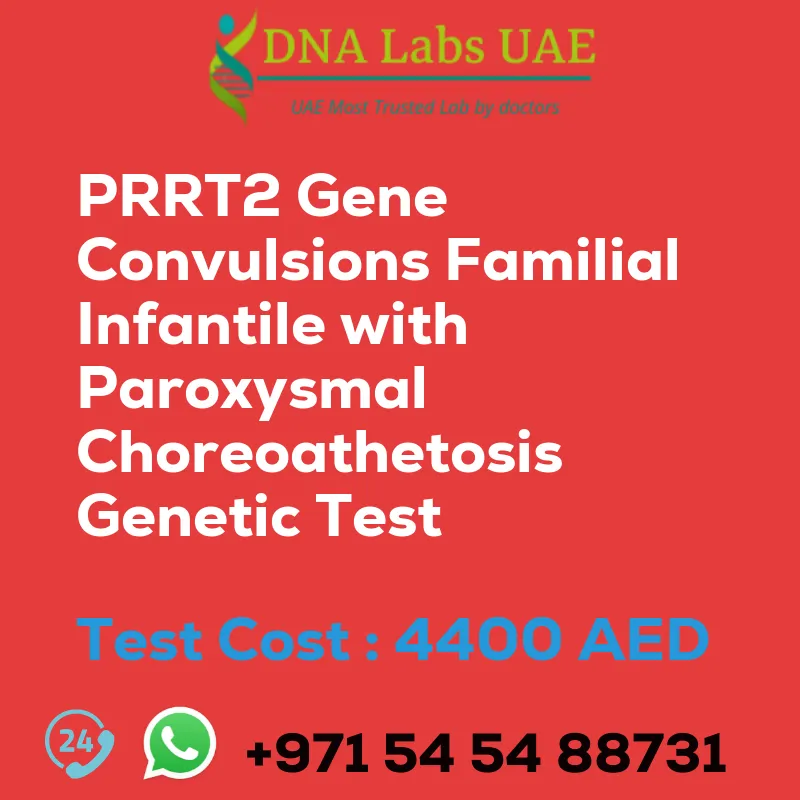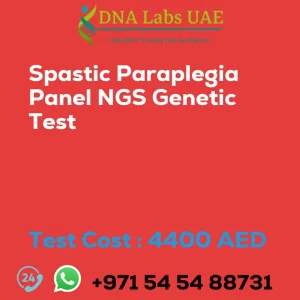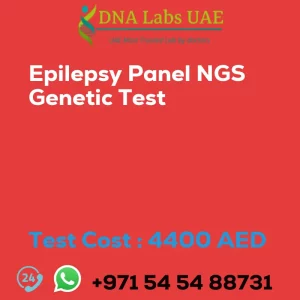PRRT2 Gene Convulsions familial infantile with paroxysmal choreoathetosis Genetic Test
Price: 4400.0 AED
Sample Condition: Blood or Extracted DNA or One drop Blood on FTA Card
Report Delivery: 3 to 4 Weeks
Method: NGS Technology
Test Type: Neurological Disorders
Doctor: Neurologist
Test Department: Genetics
Pre Test Information: Clinical History of Patient who is going for PRRT2 Gene Convulsions, familial infantile, with paroxysmal choreoathetosis NGS Genetic DNA Test. A Genetic Counselling session to draw a pedigree chart of family members affected with PRRT2 Gene Convulsions, familial infantile, with paroxysmal choreoathetosis.
Test Details
The PRRT2 gene is associated with a rare genetic disorder called familial infantile convulsions with paroxysmal choreoathetosis (ICCA). This disorder is characterized by recurrent episodes of seizures and involuntary movements, such as chorea and athetosis, which usually begin in infancy or early childhood.
NGS genetic testing for the PRRT2 gene can help diagnose ICCA and aid in genetic counseling for affected individuals and their families. The test involves sequencing the entire PRRT2 gene to identify any mutations or variants that may be responsible for the disorder.
Early diagnosis and management of ICCA can help prevent complications and improve the quality of life for affected individuals. Treatment may include antiepileptic medications to control seizures and physical therapy to manage movement disorders.
| Test Name | PRRT2 Gene Convulsions familial infantile with paroxysmal choreoathetosis Genetic Test |
|---|---|
| Components | |
| Price | 4400.0 AED |
| Sample Condition | Blood or Extracted DNA or One drop Blood on FTA Card o |
| Report Delivery | 3 to 4 Weeks |
| Method | NGS Technology |
| Test type | Neurological Disorders |
| Doctor | Neurologist |
| Test Department: | Genetics |
| Pre Test Information | Clinical History of Patient who is going for PRRT2 Gene Convulsions, familial infantile, with paroxysmal choreoathetosis NGS Genetic DNA Test A Genetic Counselling session to draw a pedigree chart of family members affected with PRRT2 Gene Convulsions, familial infantile, with paroxysmal choreoathetosis |
| Test Details |
The PRRT2 gene is associated with a rare genetic disorder called familial infantile convulsions with paroxysmal choreoathetosis (ICCA). This disorder is characterized by recurrent episodes of seizures and involuntary movements, such as chorea and athetosis, which usually begin in infancy or early childhood. NGS genetic testing for the PRRT2 gene can help diagnose ICCA and aid in genetic counseling for affected individuals and their families. The test involves sequencing the entire PRRT2 gene to identify any mutations or variants that may be responsible for the disorder. Early diagnosis and management of ICCA can help prevent complications and improve the quality of life for affected individuals. Treatment may include antiepileptic medications to control seizures and physical therapy to manage movement disorders. |







